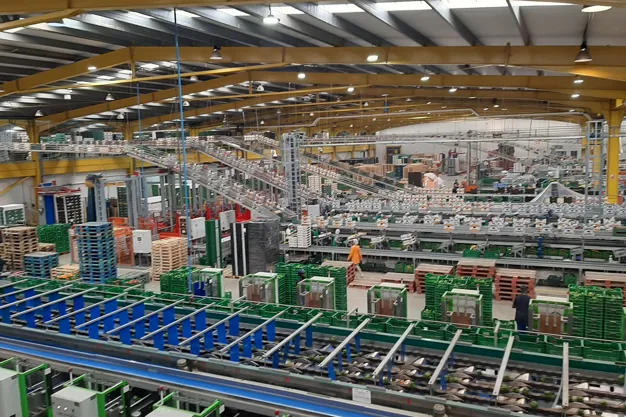We are currently in the middle of the vegetable season in Almeria, but the watermelon planting is going to start in some areas of Almeria in just a matter of weeks, and those plantings will determine the size of the supply which will start reaching the European markets in mid-April.
"Besides bell peppers, watermelons are one of Ejidomar's main products," said José Antonio Baños, president of the cooperative. "It is a product that we work with for 6 months, as we are involved not only in Almeria's campaign but also in those of Murcia and Castile-La Mancha."

"The balance of last year's campaign has not been as positive as we expected. In the early part of the season, we had very good prices in Almeria and, therefore, the growers who had productions at that time must have had very good results. During Almeria's late campaign and Murcia's early one, the rain reduced the production, causing the product to become very expensive. At that time, we had many problems supplying fruit to our customers because there was not enough available," said José Antonio. "And eventually, when volumes recovered with the start of the campaign in La Mancha, the demand did not go up enough."
"From mid-June to the end of July, watermelons were so expensive that consumers stopped buying them, and with consumption so depressed, the demand couldn't take off again, and the campaign ended with very low prices."
This year, Almeria continued betting on striped seedless watermelons, the black seedless, and the mini with micro-seeds as pollinators "because commercially, it is more widely accepted than the black with seeds," said the president of Ejidomar. "This year, these varieties will be the most planted again, and although it is still early to say for sure, everything points to the acreage being smaller than last season."
"Firstly, because of last season's results, and secondly, because this year bell peppers have been planted a little later, so the plants have also come into production later, and so far, fewer kilos have been harvested, so producers will continue until the end of the cycle. In fact, many of them have planted bell pepper this year instead of another vegetable to avoid planting watermelon later."
"In Nijar, more zucchini is planted due to the colder temperatures in the area, and this crop is uprooted at around this time to start planting watermelon from early December so that it can start to be harvested around 10-15 April. But the longer cycle of bell peppers results in the plantings in the west starting in February, and this year, they will have to start even later."
"I, for example, who am also a grower, started harvesting my first peppers today, November 22, because of the delay in the planting. If I want to harvest the kilos I need for the season, I will have to keep my plantation active for longer, and perhaps, that will lead me to decide not to plant watermelons in spring."
"In the end, it will all depend on the temperatures, which is what determines when the plants stop, and on the impact of pests, especially Thrips parvispinus. Last year, I had to uproot my entire bell pepper plantation in early February," says José Antonio. "This year, my plants have luckily not been affected, but I know of many growers who are already having issues, and some farms have already had to uproot their crops."
"We are investing heavily in integrated control to deal with this pest. Orius is doing well, but it is not enough, and although alternatives are being tested, combining auxiliary insects and phytosanitary products that are not harmful to them, we still do not have a definitive solution for the problem that Parvispinus is causing. The same can be said about aphids in watermelon, which are becoming more and more resistant."
"Right now, in cases of severe Parvispinus attacks, the only solution is to uproot the entire plantation and try restarting it. Hopefully, a more effective solution will be found soon."
 For more information:
For more information:
José Antonio Baños
Ejidomar
Carretera de Almerimar Km. 1
04700 El Ejido, Almería, Spain
Tel.: +34 950 48 35 11
ejidomar@ejidomar.es
www.ejidomar.es/
